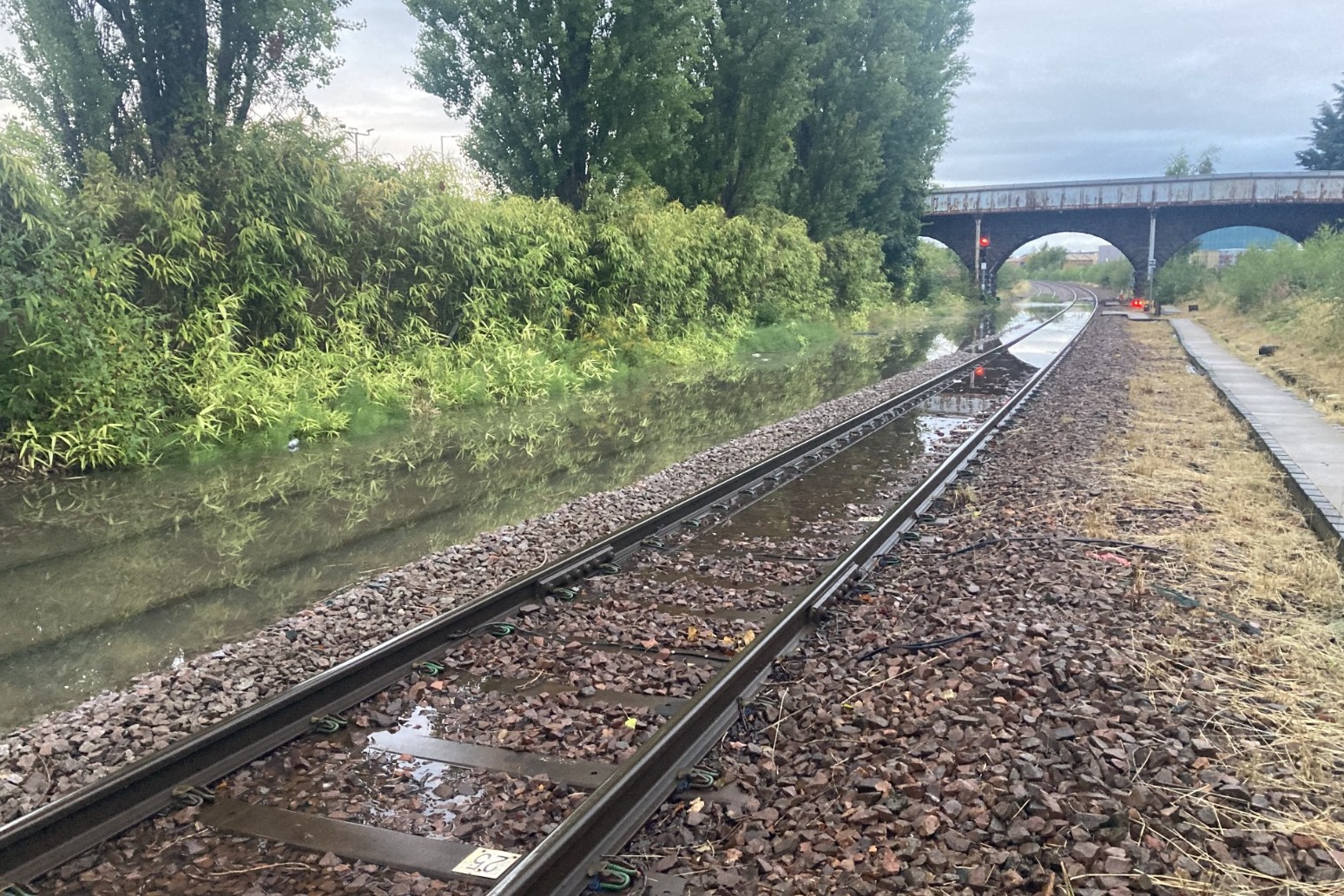
Days of thunder this week as heavy rain and floods set to continue
The UK can expect days of thunder as heavy rain and floods are set to continue over the coming days.
The Met Office has issued a yellow thunderstorm warning for most of the UK on Tuesday with conditions potentially causing more flash flooding as well as transport disruption and power cuts.
The weather warning will stay in place for southern England on Wednesday, where communities could be cut off by flooded roads, and the chance of fast-flowing or deep flood water could cause danger to life.
Heavy showers caused flooding in areas of Cornwall and Devon on Monday afternoon while thunderstorms developed in east coast counties such as Essex, Suffolk and Lincolnshire.
It came as an abrupt end to the heatwave last week and followed weeks of little rain, which had caused droughts, leaving land parched.
The National Drought Group on Friday moved parts of the South West, parts of southern and central England, and the East of England into official drought status while at least six water companies have imposed or are planning to impose hosepipe bans.
The Met Office said localised areas in England and Wales will be hit by torrential rain, thunder and localised flooding again on Tuesday.
Otherwise conditions will be warm and humid with a mixture of some sunny spells and showers.
On the longer-term forecast this week, the Met Office’s deputy chief forecaster Daniel Rudman, said: “Although the warnings are at a broad scale, forecasters expect individual thunderstorms to be quite isolated, and many within the warning not encountering storm or heavy rain.
“After Wednesday conditions will settle down somewhat for most.
“Whilst there may be some periods of rain, and it will be unsettled at times in northern and western parts, the heavy downpours associated with thunderstorms become less likely.”
The Environment Agency has put 10 flood alerts in areas of Norfolk, Derbyshire, Nottinghamshire and Leicestershire as of 10am on Tuesday morning.
David Black, chief executive of OfWat, defended the regulator’s record of holding water companies to account over leakages, new investment, targets and building resilience as more frequent extreme weather events put the system under increasing pressure.
Mr Black defended targets set for water companies as “challenging but achievable” but acknowledged that underperforming firms “need to up their game”.
Speaking to BBC Radio 4’s Today programme, he said: “We certainly agree that customers should get better service and expect better service and that’s why we have set performance targets that aim in every case to drive better performance from companies.”
Challenged on suggestions he thinks there is currently nothing wrong with the system, he said: “No, I think that companies like Thames and Southern really need to up their game.
“I think it’s very concerning that other companies, that may be performing better in the sector, cast a long shadow.
“When we see poor performance – I think the water supply interruption you referred to earlier – is quite simply unacceptable.”
Asked if OfWat targets are in line with the pressure the system is going to come under in future due to weather events, he said: “We will refresh our targets at the next price review and so we will look at what can be achieved and what needs to be achieved and set those targets accordingly.”
Mr Black then rejected suggestions that investment has been falling every decade, adding: “Some people are excluding investment in the sector by the way they’ve counted their numbers.
“The data on Ofwat’s website shows that investment has been largely constant over time and that net investment in the sector has improved four-fold.”
Professor Hannah Cloke, an expert in hydrology at the University of Reading, previously explained why there is the potential for floods in drought-hit areas.
She said: “The ground is really dry and when it is so dry it acts a little bit like concrete and that water can’t get in so it drains straight off.
“There is the damage to homes and businesses these floods can cause, and inconvenience with transport disruptions, but if it is very heavy in one place it can also be very dangerous.”
Elsewhere, the body of a teenage girl was found after emergency services were called to Crossdrive Road, Stalybridge, west of Manchester, to reports of a person getting into difficulty in water on Monday evening.
Published: by Radio NewsHub